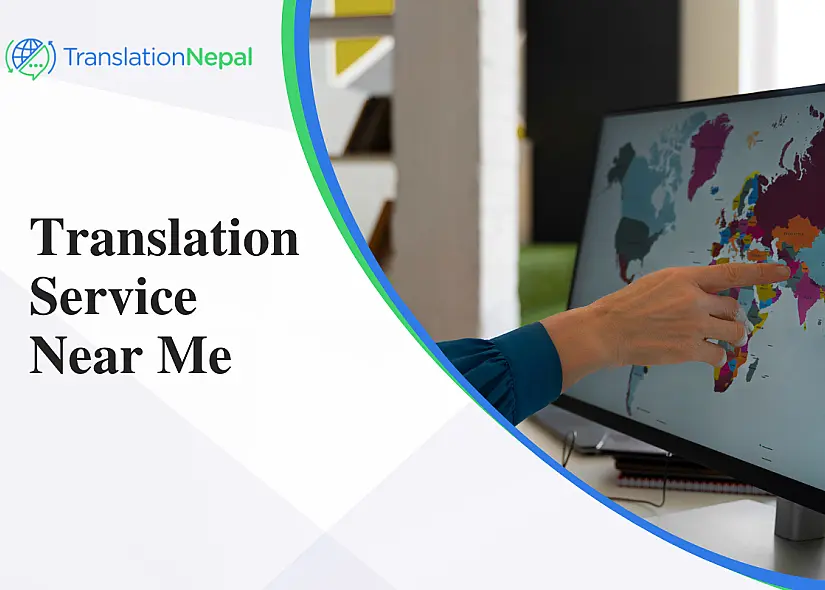In an increasingly globalized world, document translation plays a crucial role in communication, legal procedures, business operations, and personal matters. Whether translating legal contracts, immigration documents, business agreements, or personal papers, accuracy is paramount. At Translation Nepal, we specialize in document translation services that ensure precision, legal compliance, and multilingual accuracy.
This blog category, Document Translation Tips & Guides, is dedicated to helping individuals, businesses, and professionals understand the nuances of document translation. Below, we explore key aspects of effective document translation and provide actionable tips to ensure high-quality results.
1. Understanding Document Translation Needs
Before initiating a translation, it’s essential to determine the type of document and its purpose. Common document categories include:
- Legal Documents: Contracts, affidavits, power of attorney, court documents
- Personal Documents: Birth certificates, marriage certificates, passports, academic transcripts
- Business Documents: Agreements, reports, marketing materials
- Immigration Documents: Visa applications, residency papers, work permits
- Medical Documents: Patient records, prescriptions, medical reports
Each type of document requires a specialized translation approach, particularly for legal and certified documents where even minor errors can lead to major consequences.
2. Choosing a Professional Translation Service
While online translation tools can be useful for general understanding, they are not reliable for official or professional purposes. Choosing a certified translation service ensures:
- Accuracy: Professional translators are fluent in both source and target languages and understand the context.
- Legal Compliance: Certified translations meet official requirements for use in courts, immigration offices, and government agencies.
- Industry Expertise: Experienced translators specialize in legal, medical, and business document translations.
At Translation Nepal, we provide certified translations in multiple languages, ensuring that your documents are legally valid and culturally appropriate.
3. Key Tips for High-Quality Document Translation
To ensure a smooth translation process, follow these key tips:
A. Provide Clear and Legible Documents
Documents with poor readability, faded text, or handwritten notes can slow down the translation process and lead to errors. Always submit clear, high-quality scans or digital copies.
B. Specify the Target Language and Region
Languages vary by region (e.g., Spanish in Spain vs. Mexico, English in the UK vs. the US). Indicating the intended region ensures proper terminology and phrasing.
C. Ensure Consistency in Terminology
For business or legal documents, using consistent terminology is essential. If your company or legal entity has specific terms, provide a glossary to maintain accuracy.
D. Work with Certified Translators for Official Use
When dealing with official government, legal, or immigration documents, a certified translation is often required. Certified translators provide legally valid translations that are accepted by authorities.
E. Verify Formatting and Layout
Official documents require a structured format. Ensure that the translated version mirrors the original document’s layout while maintaining clarity in the target language.
4. The Role of Notarization in Document Translation
In Nepal, notarized translations are often necessary for legal use. A notary public verifies the authenticity of a document translation, making it legally valid for submission to courts, embassies, and government agencies.
Translation Nepal offers document notarization services alongside translation to ensure that your documents are both accurately translated and legally recognized.
5. Common Mistakes to Avoid in Document Translation
- Using Automated Translation for Official Documents: Machine translations often lack contextual accuracy.
- Ignoring Cultural Differences: Phrases, idioms, and legal terminology differ between languages.
- Overlooking Legal Requirements: Some documents require certified or notarized translations for acceptance.
- Neglecting Proofreading: Even professional translations should undergo a final review to ensure accuracy.
Conclusion
Accurate document translation is vital for legal, business, and personal use. By following best practices and working with professional translators, you can ensure high-quality, legally compliant translations.
At Translation Nepal, we offer certified, multilingual, and notarized document translation services in Nepal. Whether you need a legal contract translated, an immigration document prepared, or a business report localized, we provide fast, reliable, and professional translation solutions.
For expert document translation services, contact us today at info@translationnepal.com or call +977 9841242647. Explore our services at Translation Nepal.

